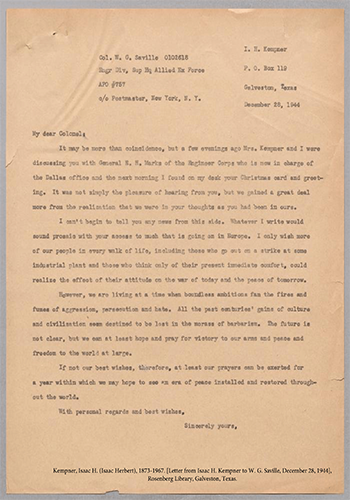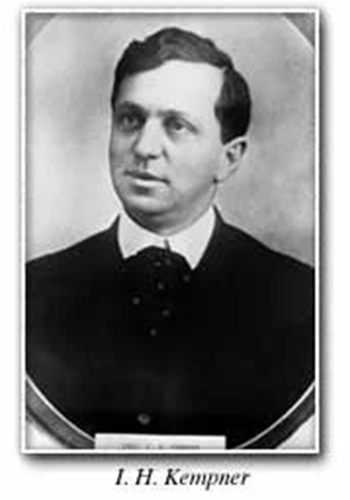The Story
The Morass of Barbarism
By December of 1944, a war-weary world could at last conceive of an end to five years of horror and bloodshed. Battles – whose stories would become legend in American lore and textbooks – raged across the Pacific and in Europe, but confidence in ultimate victory increased with each captured enemy stronghold and liberated village. In Europe, American and British forces pushed toward Germany from the west; while the Soviet army’s onslaught from the east was exacting revenge for Nazi atrocities. These events hinted that peace would soon follow. Besides, it was Christmas season.
But on December 16th, a desperate, unexpected counter offensive by the German army through France blind-sided hopes for a quick peace. American and British forces fought desperately under the worst winter conditions imaginable. The Battle of the Bulge raged for more than a month. The United States would lose approximately 19,000 men, our country’s deadliest single World War II battle. The Allies prevailed, in large part to generals who could lead, men who could fight, and an American military logistics system second to none.
With the battle in full swing and the outcome in doubt, Galveston businessman and philanthropist, Isaac Kempner, drafted a letter to a friend and former colleague serving in Europe, thanking him for a “Christmas card and greeting.” Bad news travels fast, as they say, so odds were good that Isaac was aware of the situation in France. The usual holiday reply would not do.
Unlike today, where the ease of Internet and social media allow us to write, edit, send, and respond with amazing speed, Isaac’s typewriter world required a more contemplative approach; every word carefully selected and every paragraph patiently crafted to ensure maximum clarity and purpose. I think he succeeded.
Isaac Kempner’s words reinforce what has always been at stake. But he remains hopeful.
Buck
The History
[From] Isaac H. Kempner
P.O. Box 119
Galveston, Texas
December 28, 1944
[To:] Col. W. G. Saville
Engr Div, Supply HQ, Allied Expedi onary Force
APO #757
c/o Postmaster, New York
My dear Colonel, It may be more than coincidence but a few evenings ago Mrs. Kempner and I were discussing you with General E. H. Marks of the Engineering Corps, who is now in charge of the Dallas office, and the next morning I found on my desk your Christmas card and greeting. It was not simply the pleasure of hearing from you, but we gained a great deal more from the realization that we were in your thoughts as you had been in ours.
I can’t begin to tell you any news from this side. Whatever I write would sound prosaic with your access to much that is going on in Europe. I only wish that more of our people, in every walk of life, including those who go out on strike at some industrial plant, and those who only think of their present immediate comfort, could realize the effect of their attitude on the war of today and the peace of tomorrow.
However, we are living at a time when boundless ambitions fan the fire and fumes of aggression, persecution, and hate. All the past centuries of culture and civilization seem destined to be lost in the morass of barbarism. The future is not clear but we can at least hope and pray for victory to our army, and peace and freedom to the world at large.
If not our best wishes, therefore, at least our prayers can be exerted for a year within which we may hope to see an era of peace installed and restored throughout this world.
With personal regards and best wishes,
Sincerely yours.
Citation
Kempner, Isaac H. (Isaac Herbert), 1873-1967. [Letter from Isaac H. Kempner to W. G. Saville,
December 28, 1944], Rosenberg Library, Galveston, Texas.



